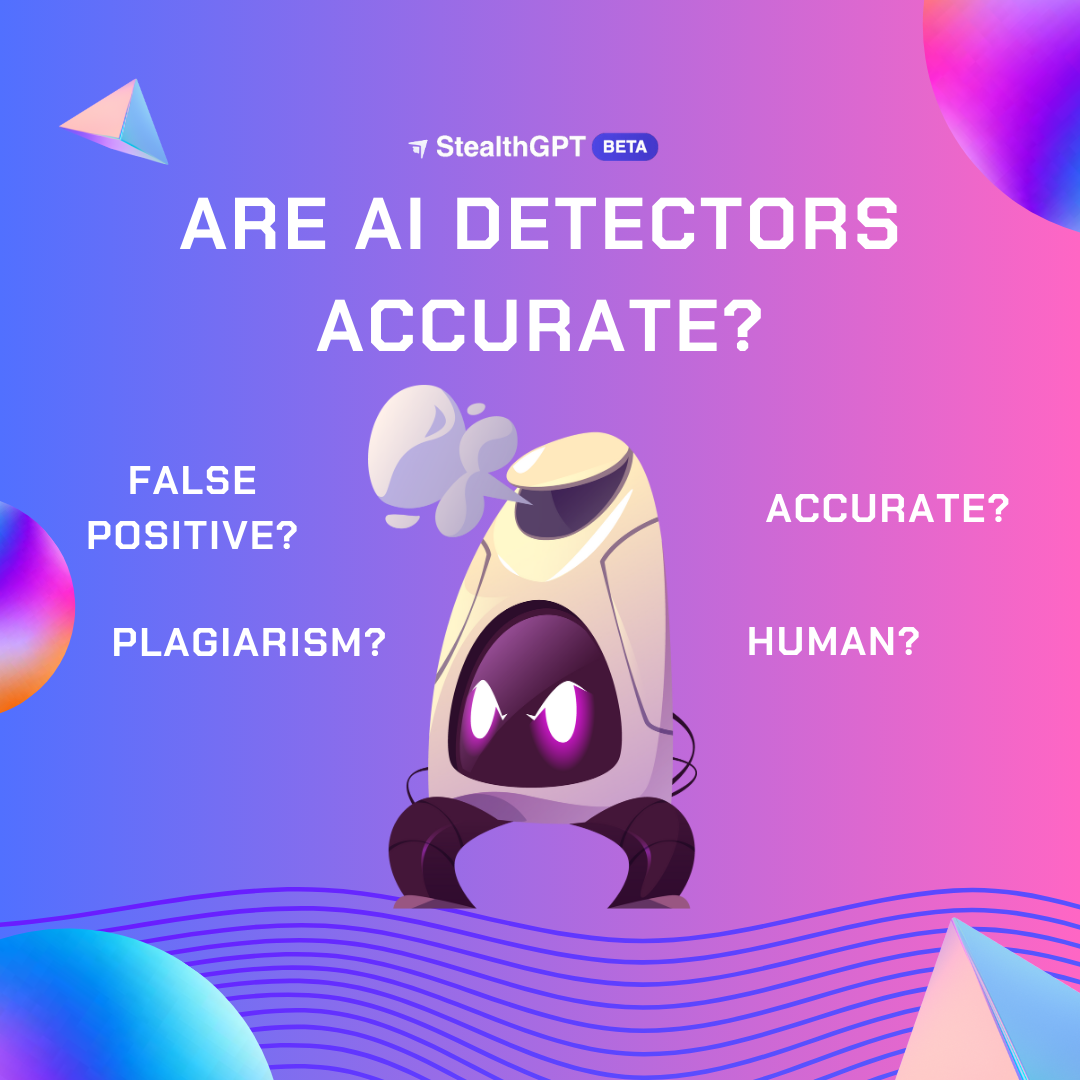Detect AI with Precision Using the Powerful Features of AI Detector
Detect AI with Precision Using the Powerful Features of AI Detector
Blog Article
Recognizing the Importance of an Ai Detector in Today's Digital Landscape
As fabricated intelligence continues to penetrate numerous facets of material production, comparing human-generated and machine-generated material has actually become progressively complex. This progressing landscape offers significant challenges connected to credibility and dependability, demanding the growth of AI discovery tools. These instruments not only aid in recognizing AI-produced material yet also copyright the stability of information dissemination. Comprehending their role becomes imperative as we navigate a future where the reliability of media is under consistent examination. What implications might this have for customers and makers alike?
The Surge of AI Content

The surge of AI-generated content has substantial ramifications for numerous industries, consisting of amusement, advertising and marketing, and journalism - ai detector. Organizations are increasingly utilizing these innovations to enhance performance, personalize web content, and engage target markets better. The capability to analyze huge datasets permits AI systems to tailor web content to meet particular customer preferences, giving an extra tailored experience
However, the proliferation of AI web content also raises essential considerations for material designers and consumers alike. As AI comes to be extra integrated right into content production workflows, understanding the nuances of AI-generated material is essential for maintaining high quality and relevance in a swiftly evolving electronic environment. Embracing this technical development while staying cautious regarding its ramifications is vital for stakeholders in the digital media landscape.
Difficulties of Authenticity
The introduction of AI-generated content has actually presented substantial obstacles concerning credibility in digital media. As algorithms become a lot more innovative, comparing human-created and machine-generated web content comes to be increasingly difficult. This obscuring of lines raises concerns about the reputation of info and the potential for false information to multiply.
Among the primary obstacles is the disintegration of trust fund among customers. With AI with the ability of creating sensible message, images, and videos, individuals might locate it testing to determine authentic sources from deceptive ones. This uncertainty can result in a broader mistrust of all digital content, making complex efforts to identify respectable information.
In addition, the effects for copyright are significant. As AI tools create material based on existing works, concerns pertaining to ownership and creativity develop. Content creators may struggle to shield their job from uncredited AI reproductions, threatening their civil liberties and resources.
Last but not least, the capacity for harmful usages of AI-generated content, such as deepfakes and automatic publicity, presents major ethical and societal risks. These difficulties emphasize the immediate requirement for frameworks that promote authenticity in the electronic landscape, ensuring that details continues to be reliable and reputable.
Role of AI Detectors
Attending to the difficulties of authenticity in digital media needs ingenious services, and AI detectors have arised as a crucial device in this initiative. These technologies are created to evaluate and identify material generated by man-made intelligence, therefore facilitating the discernment in between human-created and machine-generated products. The role of AI detectors expands beyond mere identification; they additionally add to keeping the honesty of info taken in by the public.
AI detectors make use of sophisticated algorithms to look at various components of digital material, consisting of linguistic patterns, structural anomalies, and particular pens that indicate automation. Their application spans multiple fields, including journalism, education, and social media sites, where the presence of AI-generated content can bring about false information and disintegration of depend on.

Advantages of Utilizing AI Detectors
Guaranteeing authenticity in electronic web content symbolizes the essential demand for rely on information sources, and AI detectors act as an effective ally in this search. By determining AI-generated content, these devices assist preserve the stability of details, thereby safeguarding customers from misinformation and enhancing total material quality.
Among the primary advantages of using AI detectors is their capability to simplify content verification procedures, dramatically lowering the dig this moment and initiative required to examine the authenticity of digital materials. This efficiency enables material creators, instructors, and companies to concentrate on producing dependable and high-grade details, rather than spending excessive sources on fact-checking.
Furthermore, AI detectors foster responsibility among material developers. The understanding that AI-generated content can be recognized encourages openness and moral practices in web content manufacturing. This, in turn, adds to a much more educated digital community, as users can with confidence engage with validated information.
Future of Web Content Confirmation
As the landscape of electronic content remains to progress, the future of content verification provides both tests and possibilities for maintaining credibility. As AI technologies breakthrough, so also do the approaches for sharing and producing misinformation (ai detector). This arms race between material developers and confirmation tools demands the development of more innovative AI detectors with the ability of critical authentic content from controlled or made product

In addition, the surge of decentralized innovations, such as blockchain, holds pledge for validating material provenance, making certain that individuals can trace the origins of the information they take in. Eventually, the future of material verification will pivot on our capability to innovate despite progressing risks, fostering a digital setting where authenticity is acknowledged and maintained as a fundamental concept.
Final Thought
In verdict, the spreading of AI-generated content necessitates robust devices for authenticity confirmation. The future of content confirmation hinges on the efficiency of AI detectors in keeping credibility across different media systems.
AI web content production tools, such as all-natural language processing models and generative adversarial networks, enable organizations and individuals to create top notch material at unprecedented speeds click here to find out more and reduced costs.
Nevertheless, the spreading of AI content also increases vital factors to consider for material designers and customers alike. As the elegance of AI-generated content continues to develop, the function of AI detectors becomes progressively essential in protecting credibility click resources and advertising openness in digital interaction. The knowledge that AI-generated web content can be determined urges transparency and honest methods in content production.As the landscape of digital material proceeds to progress, the future of web content confirmation offers both challenges and opportunities for keeping authenticity.
Report this page